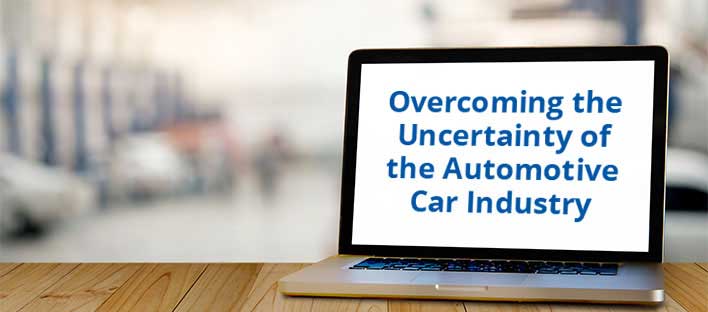Failure is not fatal, but failure to change might be. John Wooden
What’s the future of the automotive service industry? As I ponder this common question, I’m reminded of the tale of two CEOs from another industry. Allow me to introduce you to Reed and John. Reed was the founder of a small niche business that was losing money. John was the CEO of an established Fortune 500 organization.
John was the top dog, the eight-hundred-pound gorilla, and any other metaphor you would use to describe the top player in a market. One day, Reed approached John with an interesting proposal.
He offered to sell John his fledgling company for $50 million dollars, with him staying on to lead his part of the organization. John and his executive team listened intently to the proposal and took copious notes.
After much deliberation, they proceeded to laugh Reed right out of the room! After all, why would John need to change, when he was already at the top of his industry?
Let’s fast forward a few years. Reed Hastings’s “fledging company” Netflix is now worth $32 billion dollars, while John Antioco’s Blockbuster Video is now out of business.
Many business experts have attributed the demise of Blockbuster Video, Borders Bookstore, and the Blackberry Smartphone, to the advances in technology.
I disagree. The tale of two CEOs teaches us that the failure to change is the fatal flaw. Advancing technology creates uncertainty, but Netflix has managed to overcome the uncertainty in the entertainment industry.
I know what you’re thinking: “Great story, Twiggs, but my industry is different. Cars don’t break down like they used to, and they don’t require as much maintenance.” Well, stay with me to learn the two changes you need to make to overcome the uncertainty in the automotive industry:
Change Your Perspective
Before starting Netflix, Reed Hastings was a customer of Blockbuster Video. He liked the idea of visiting the video store on the weekends to rent a movie. What he didn’t like was having to pay the late fees for returning a movie after the due date. His pain reached its peak when he had to pay over $300 in additional fees after returning a set of movies that he had misplaced.
The thought of having to explain the additional expense to his wife left him a feeling of anxiety. This pain inspired him to create Netflix, where the customer can rent a video without having to worry about late fees. Netflix exists today because he saw the problem from the perspective of the customer.
Put yourself in your customer’s shoes. What is it about having her car serviced that makes her anxious? Is it price? Then show her the Edmunds.com true cost to own page that itemizes all of the expenses involved with purchasing a new car. A minor investment in maintenance trumps the major expense of a new vehicle.
Is it trust? Then show her the pictures of what you found during the inspection. Data from AutoVitals confirms that the most trusted shops in the ATI Program take and send inspection pictures to at least 80 percent of their customers per week. Reed would agree that changing your perspective can change your bottom line.
Change Your Pay Philosophy
In keeping with the entertainment industry theme, I’m reminded of a recent interview I saw with actor/director Denzel Washington. The movie he directed, “Fences,” was nominated for an Academy Award for Best Picture.
The reporter asked what made him successful as a director. His response applies to the automotive as well as the entertainment industry. He said: “80 percent of directing is casting.”
Do you have an award-winning cast of “A list” service managers and technicians? Thanks to Amazon, eBay, and internet technology, customers don’t have to interact with a human to get the product or service they want.
Employing better people, with a track record of delivering “wow” experiences, is more important now than ever. The need for better people may require you to change your pay philosophy.
Many of the top performing shops in the program have increased their labor rates, in an effort to afford better people. They are also offering medical, dental, vision, and retirement benefits. Again, I know what you’re thinking: “But Eric, I can’t afford to pay more.”
I would challenge you to reconsider by asking the following question: How much business would having no person or the wrong person in a key role cost you? Chances are, it would work out to be more than the additional $3 per hour that you would invest in an “A player.”
Summary
So, there you have it. Blockbuster, Borders, and the Blackberry would still be around if they had been more receptive to change.
It’s unlikely that John Antioco will ever become a Netflix customer. If you are willing to change your perspective and change your pay philosophy, it’s likely that you will overcome the uncertainty of the auto industry!
